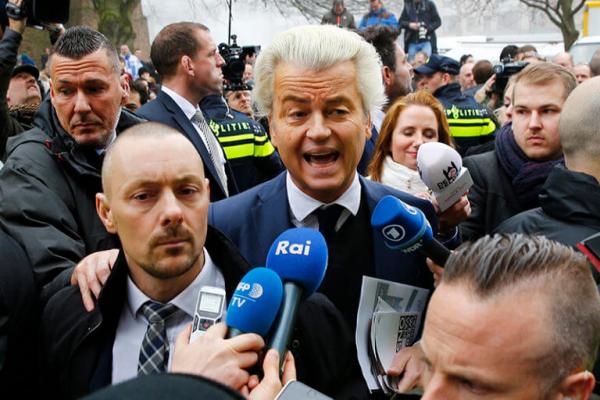Feb 21, 2017
“Dutch values are based on Christianity, on Judaism, on humanism. Islam and freedom are not compatible,” populist politician Geert Wilders, 53, said in an interview with USA Today. “You see it in almost every country where it dominates. There is a total lack of freedom, civil society, rule of law, middle class; journalists, gays, apostates — they are all in trouble in those places. And we import it.”
Read the Full Article

Already a subscriber? Login
